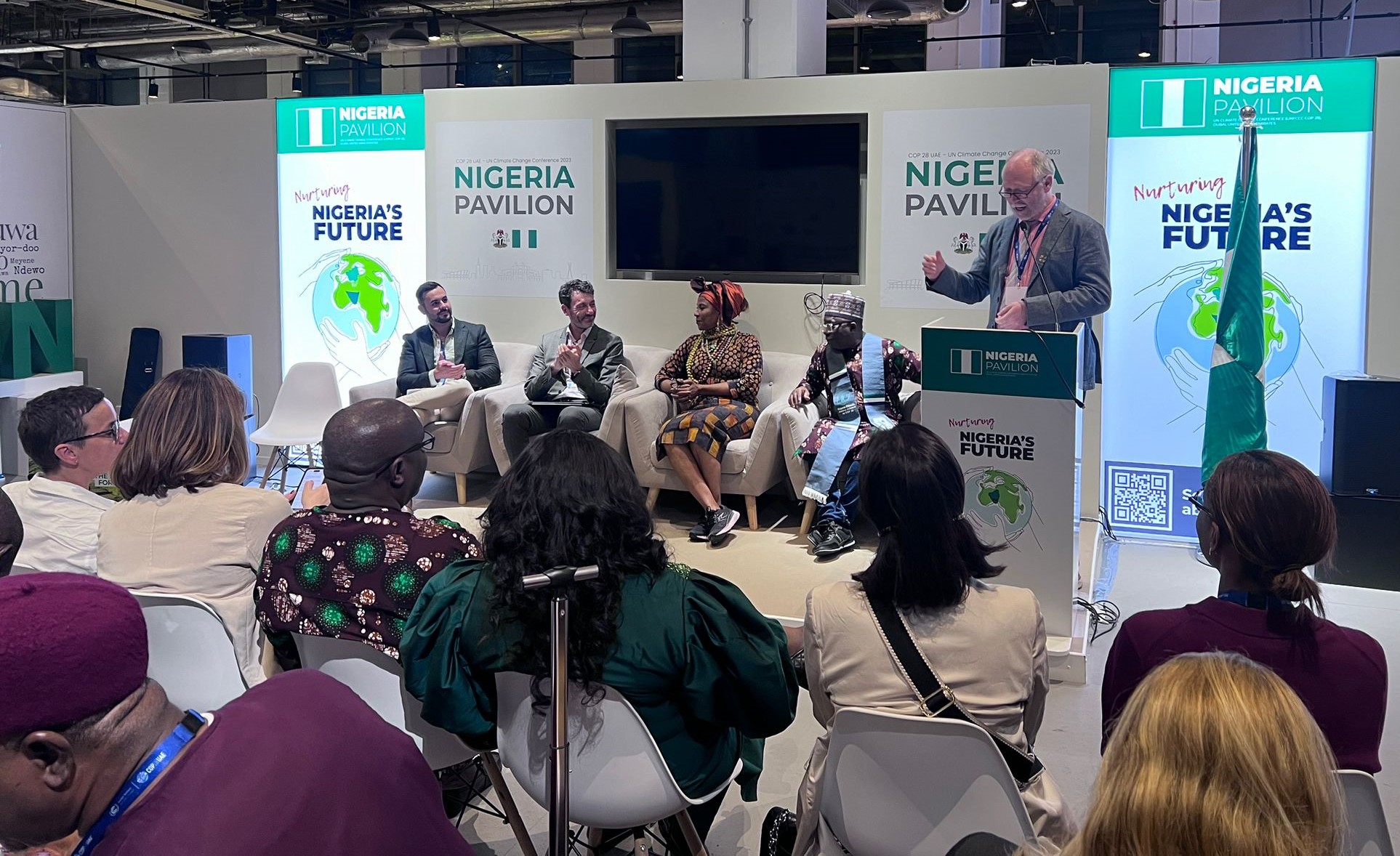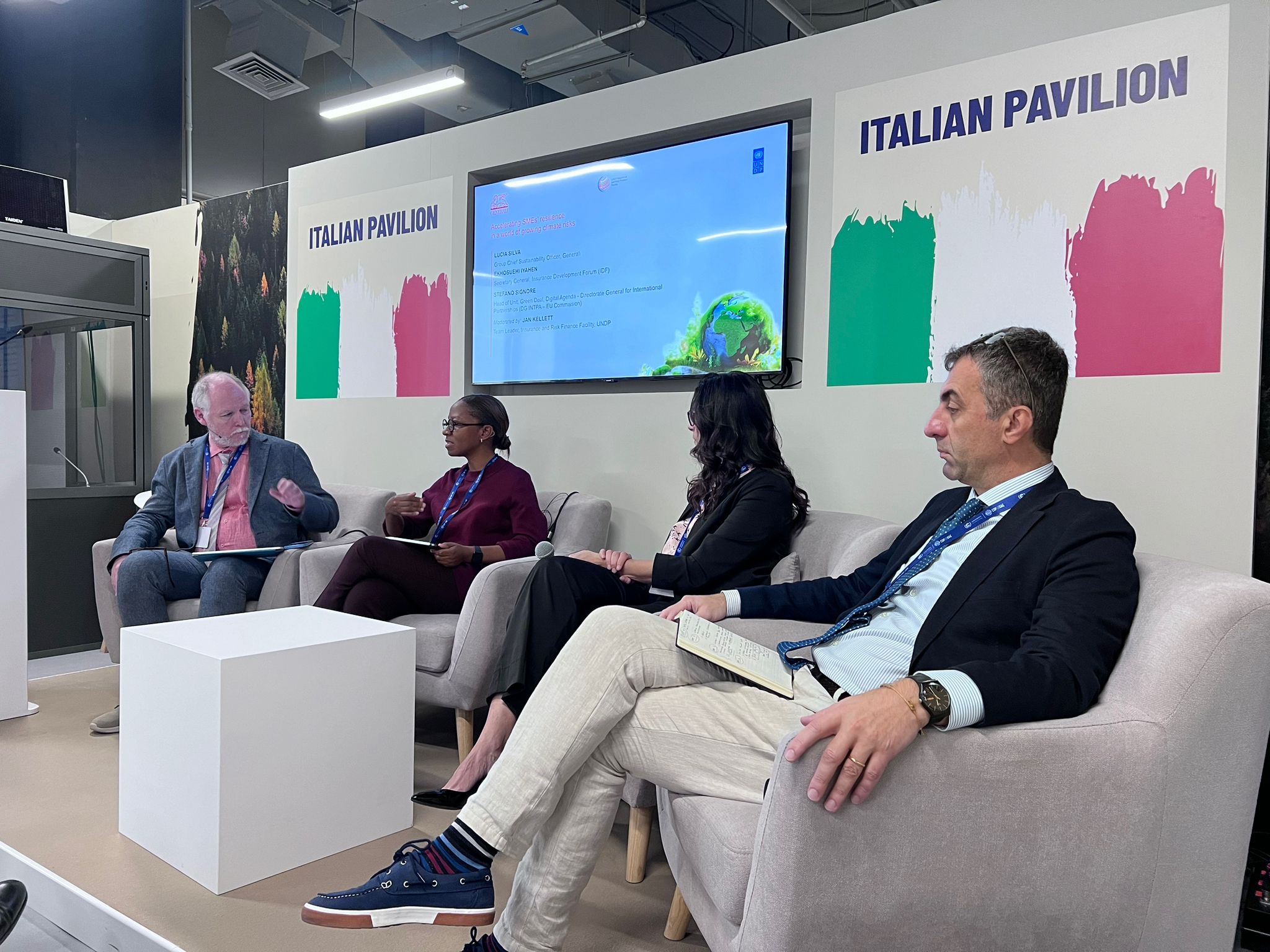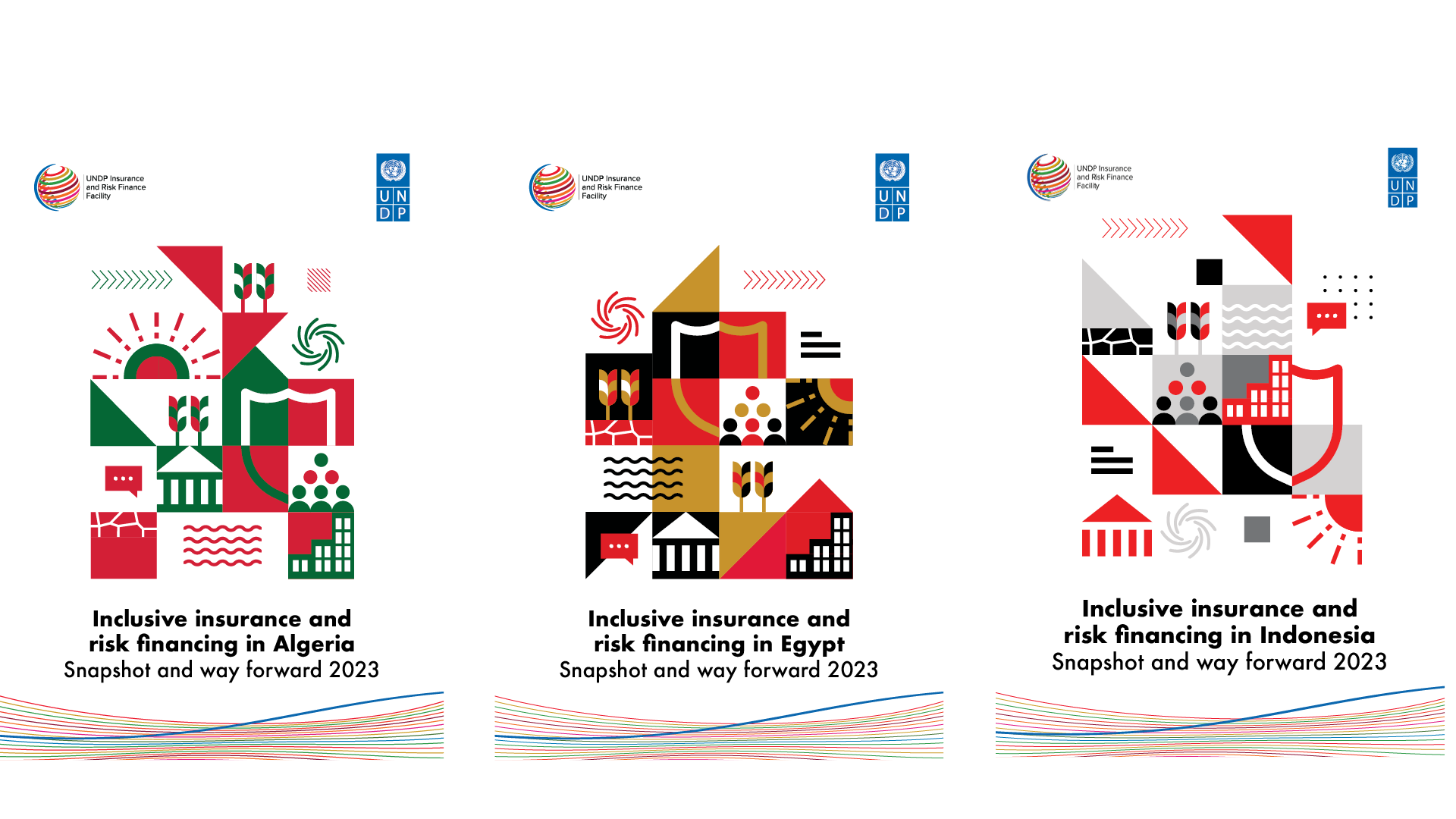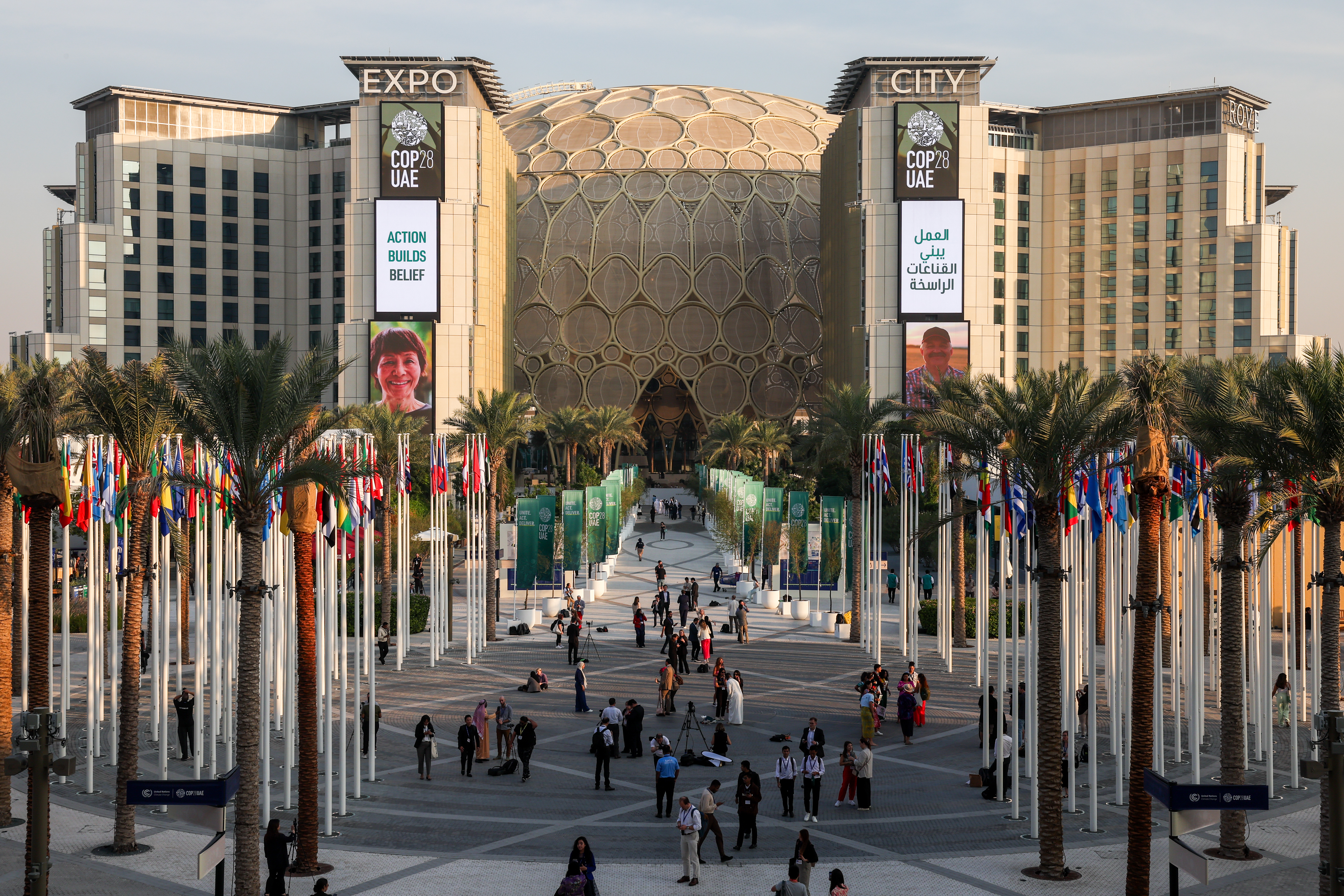Adaptation and financial resilience reached new heights on the global agenda at COP28 – including unprecedented attention and engagement on the role of insurance in managing escalating risks. Discussions came to a close last week with a ‘historic’ deal to transition away from fossil fuels but fell short on delivering sufficient finance to allow vulnerable countries to carry out climate action at the level of ambition necessary.
UNDP’s Insurance and Risk Finance Facility and our partners convened side events and open discussions on accelerating financial protection for countries, communities, SMEs, small holder farmers, digitally enabled insurance and much more. Tangible solutions were the focus as we shared strategies for scaling private sector support and working hand in hand with governments to explore and implement new frontiers of financial resilience innovation.
Highlights
- Referred to as ‘the beginning of the end of the fossil fuel era’, more than 190 countries have formally agreed to transition away from fossil fuels in a just and equitable manner
- The loss and damage fund is seen as a breakthrough, with nearly US$800 million of capitalization raised to help those suffering most from the effects of climate change whilst being the least least responsible.
- Article 58, under ‘Financial Instruments’ indicates the Fund may deploy insurance mechanisms, risk-sharing mechanisms and pre-arranged finance that augments and complements national resources for addressing loss and damage. - Risk-sharing mechanisms were socialised at COP28 as a means for the insurance sector to help fund loss and damage by providing hardest hit developing countries with the finance to pay a premium that would deliver certainty should disaster strike.
- The Global Goal on Adaptation (GGA) Framework was agreed, to guide nations in their efforts to protect their people and ecosystems from climate change.
- Innovation to protect people and planet were also in the spotlight at COP28 - from Takaful as a shariah compliant alternative to insurance, to parametric insurance projects launched to protect Indonesia’s coral reefs.
- COP28 UAE Declaration on Agriculture, Food, & Climate embeds sustainable agriculture and food systems in response to climate change and received endorsements from 158 countries.
Insurance and Risk Finance Facility at COP28:
With rising debt levels and insecurity, sovereign financial resilience was a critical topic at COP28

- The Government of Nigeria Pavilion hosted a #COP28 discussion on resilience - highlighting the progress, learnings and delivery of the Tripartite Agreement – one of the largest public-private partnerships in development between UNDP, BMZ and 20 of the world’s largest insurers under the framework of the Insurance Development Forum.
- In numbers - projects to scale up insurance and risk finance solutions have been rolled out in over 20 countries, with 64 million projected beneficiaries, and an offered risk-capacity of US$5 billion from insurance industry partners.
Find out more: https://irff.exposure.co/undps-insurance-and-risk-finance-tripartite-programme-snapshot
- UNDP is implementing a comprehensive technical assistance programme to strengthen disaster risk financing and develop local insurance markets
- Examples discussed included sub-sovereign risk transfer schemes for urban floods covering life and public assets in Ghana and Nigeria and initiatives in Pakistan, Mexico, and Uzbekistan addressing agriculture, parametric insurance for drought, and climate-vulnerable crops.
Spotlight on SME Resilince to growing climate shocks

- SME’s are the backbone of many developing country economies, providing jobs, growth, and social fabric, and they are equally on the frontlines of climate and other hazards and shocks that need to be highlighted and addressed, especially since the vast bulk of small-business have no financial protection.
- Hosted by the Italian Government, UNDP’s IRFF and Generali organised a side-event to build understanding and momentum around how climate change is impacting SME business activities and which actions and programs can create the right incentives for the promotion of new, resilient economic opportunities.
- In March 2024 Generali and UNDP will release a joint report, 'Building MSME Resilience in the ASEAN’ mapping MSME risks and opportunities in ASEAN countries and with a focus on Thailand and Malaysia
Innovative mechanisms to build resilience - Takaful as an alternative to insurance
- Many mainstream approaches using conventional insurance solutions to manage climate risks are not Shari’ah compliant and exclude vulnerable Muslim communities from critical financial protection.
- Our COP28 side event organised with the Islamic Development Bank (IsDB), Islamic Development Bank Institute (IsDBI) and in collaboration with The Arab Gulf Programme for Development(AGFUND) and Kuwait Finance House discussed ambitions to deliver financial resilience to climate risks through Takaful
- Launch of the joint UNDP, ISDB and ISDBI report “Insuring a Sustainable Future: Building Climate Resilience Through Takaful”
- Official announcement of seed financing for the Takaful Alliance from AGFUND, a crucial step forward in advancing the work of working towards the financial resilience of 100 million people by 2030.
Innovative mechanisms to protect coral reefs and build coastal community resilience
- The Ocean Risk and Resilience Action Alliance and the UK’s Blue Planet Fund unveiled 12 groundbreaking projects at COP28 aimed at bolstering ocean and coastal resilience through innovative finance and insurance solutions.
- Amongst the announced projects is UNDP’s IRFF collaboration with Swiss Re to create parametric/hybrid insurance products to protect and restore coral reefs, while strengthening the financial resilience of communities dependent on reef-related sectors such as fishing and tourism.
- See the article in the Nikkei, which outlines how UNDP sees the role of financial resilience of natural capital in a world of rising risk. Read here
And this wasn’t all
The UNDP's Insurance and Risk Finance Team also contributed to events on digital finance and financial inclusion, financial resilience in the Arab States, standards focused investments, the need for massive investments in resilience, and more. To find out more please contact ceandra.faria [at] undp.org
As part of our COP28 focus on advancing inclusive insurance, risk finance and overall development, the IRFF released three new country diagnostics at COP28 - mapping key risks, the current state of inclusive insurance and risk finance in Indonesia, Egypt and Algeria.

What’s next
The 'COP29’ climate negotiations in 2024 will be held in Azerbaijan. The next round of national climate action plans – or Nationally Determined Contributions are due in 2025, and where countries will be expected to have seriously boosted their actions and commitments on financing climate resilience. Timely, because UNDP’s work to integrate insurance and risk financing into the NDCs across the world will roll out in earnest in the first half of 2024.
Other insurance related headlines from COP28
- The Cambridge Institute for Sustainability Leadership, with advisory from UNDP IRFF’s Global and Corporate Lead Jan Kellett, released a high-profile report on how pre-arranged financing driven by the loss and damage fund could build massive financial resilience – example, one billion of premium could provide 75 billion of protection for Pacific Sids; see more here: https://www.cisl.cam.ac.uk/news-and-resources/publications/risk-sharing-loss-and-damage-scaling-protection-global-south
- Re/insurance industry players Alliant, AXA, Gallagher Re, Howden, Mosaic Insurance, Munich Re, and WTW backed a Joint Declaration and Task Force launched by MDBs at COP28 to boost sustainability-linked sovereign financing for nature and climate at COP28.
- The African Development Bank Group aims to mobilise $1 billion of concessionary financing, high-risk capital and grants to support the African insurance industry’s protection of farmers across the continent.
